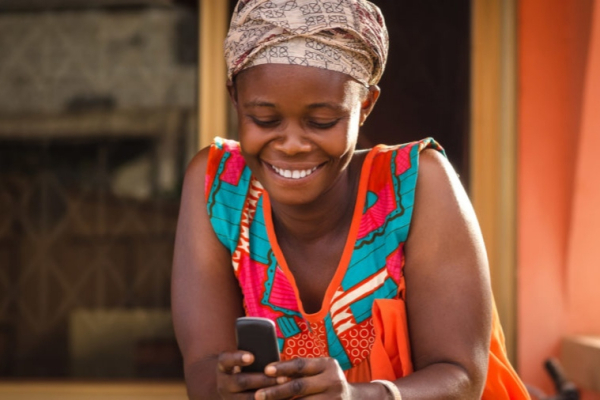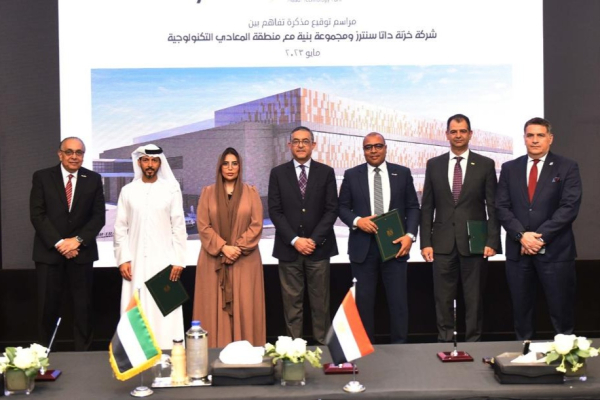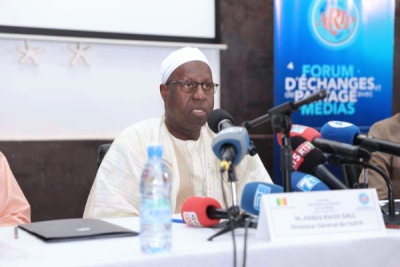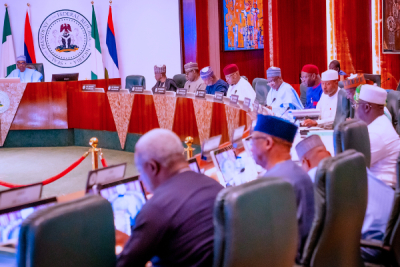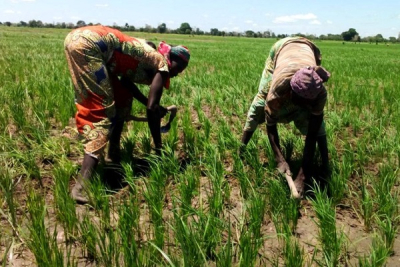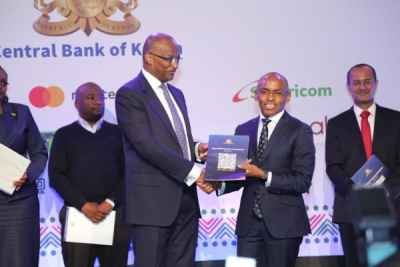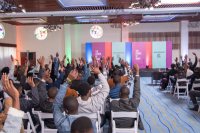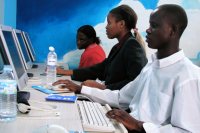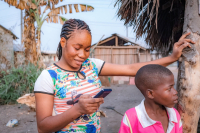
News (1792)
Over the past few years, mobile money has become an increasingly important financial tool for a growing segment of the African population. As the service becomes more diversified, it continues to gain maturity and conquer new markets across the continent
In 2022, Africa was the fastest-growing mobile money market in the world. In its "State of the Industry Report on Mobile Money 2023", the GSM Association (GSMA) reveals that the continent recorded 166 active services (out of 315 worldwide) and 781 million active accounts (48.81% of the world's 1.6 billion registered users), up by 17% compared to 2021.
The continent also accounted for 44.9 billion (+21%) financial transactions estimated at $836.5 billion (+22%). The amount represents 66.39% of the $1.26 trillion mobile money transactions recorded worldwide in 2022.
East Africa remained the most dynamic sub-region on the continent with 390 million active accounts, 28 billion transactions, and $491.8 billion in transaction value. North Africa, due to its small size, recorded the lowest performance with 18 million active accounts, 97 million transactions, and $4.7 billion in transaction value.
Infographic: Mobile Money Market in Africa (2022)

Source: GSMA
According to the GSMA, despite this positive performance, there are lingering challenges that threaten financial inclusion. “Some countries have introduced taxes on mobile money transactions and fees that do not align with their financial inclusion objectives. Fraud also remains an industrywide issue, which many regulators are aiming to overcome through improved consumer awareness and capacity building,” the report indicates.
Competition is intensifying in Africa's rapidly growing data center market. Both local and foreign companies are increasing their investments in infrastructure to meet the rising demand for cloud services across the continent.
An agreement was signed on Monday, May 8, to secure land for the construction of a large-scale data center in Egypt. Khazna Data Centers, a company specializing in data center construction and operations based in Abu Dhabi, has partnered with the Egyptian ICT company, Benya Group, to carry out the project. The agreement was signed by Ahmed Mekky, CEO of Benya Group, Hassan Al Naqbi, CEO of Khazna Data Centers, and Amr Aboualam, chairman of Maadi Technology Park.
Under the agreement, Khazna Data Centers and Benya Group will build a $250 million data center at Maadi Technology Park in Cairo. The center will have a capacity of 25 megawatts (MW) that is expected to double to 50 MW as expansion plans are implemented. The goal is to meet the region's underserved data markets. Construction works are expected to begin later this year and be completed within three years.
The new agreement marks Khazna’s entrance into the Egyptian market. The company plans to expand into three other MENA markets, including Saudi Arabia, Kuwait, and Morocco.
According to Ahmed Mekky, Khazna's expansion in Egypt "will contribute to attracting more investments for business sectors involving intensive operations, supporting cloud computing and content system operators” and “encourage major commercial companies to join these giant digital clusters that rely on the latest cloud computing applications, digital technology, and big data."
Samira Njoya
Senegal is poised to join the exclusive group of African nations that have already adopted 5G technology. In line with its drive to implement a successful digital transformation, the country aims to upgrade to ultra-fast internet connectivity to realize its objectives.
Senegal will effectively proceed to the commercial employment of 5G in July 2023. The date was announced by the director general of the telecom regulator ARTP, Abdou Karim Sall (photo), last Friday, during the 6th edition of a forum that brings together the regulator and media professionals.
"Before the end of July, we would have already completed the license awarding and extension process. [...] We have already discussed with operators and shown them the need to provide 5G in Senegal,” he said.
In December 2021, Sonatel carried out a second 5G test, confirming its ability to offer broadband services in the country. In June 2022, Free, its rival, launched an experimental phase with technical support from Ericsson. About a month later, in July 2022, Orange also inaugurated its first African Orange 5G Lab in the country.
In Senegal, the 5G technology is expected to help develop some economic sectors, including e-sport, a revenue-generating activity driven by the increasing availability of affordable mobile devices, improved Internet access, and the birth of online gaming platforms.
Africa has great e-sport potential, which can generate important revenues for companies that have the right marketing strategies. According to a report by Mordor Intelligence, the African gaming market is expected to grow at a compounded annual growth rate of about 12% between 2021 and 2026.
Senegal is one of the first Sub-Saharna African countries to have adopted a legal framework for the promotion of esports.
Samira Njoya
In 2020, Nigeria adopted a 10-year strategic plan to boost blockchain adoption. The plan banks on the blockchain to foster growth and prosperity in the years to come.
The Federal Executive Council of Nigeria approved, Wednesday (May 3), the National Blockchain Policy, according to a press statement from the Federal Ministry of Communications and Digital Economy. The said approval follows a memo presented by Digital Minister Isa Ali Pantami, we learn.
“The vision of the Policy is to create a Blockchain-powered economy that supports secure transactions, data sharing, and value exchange between people, businesses, and Government, thereby enhancing innovation, trust, growth, and prosperity for all. The implementation of the National Blockchain Policy will have a positive effect on both the public and private sectors of the country,” the press statement reads.
The executive believes that blockchain technologies can accelerate the development of the country’s digital economy. To capitalize on the said technologies, in 2020, the country launched a blockchain adoption strategy. The country hopes the strategy will lay the groundwork to generate around $10 billion in revenues from the blockchain by 2030.
Nigeria bases its revenue estimates on a recently published PricewaterhouseCoopers report which states that blockchain happens to be one of the "fastest growing technologies in the world." The report explains that by 2030, the technology could generate $1.76 trillion in revenues worldwide, representing 1.4% of the global GDP.
According to the federal government, the implementation of the National Blockchain Policy will have a positive effect on both the public and private sectors in Nigeria. It will revolutionize many sectors, from finance and healthcare to transportation and supply chain management.
It can also make “transactions more transparent, trustworthy, and efficient and it can result in considerable cost savings and better user experiences.”
“Furthermore, Blockchain Technology can boost innovation, improve public services, create job opportunities, and drive economic growth,” the press statement informs.
Samira Njoya
Lillian Barnard has been the managing director of Microsoft South Africa since 2019. Kalane Rampai will replace her.
Microsoft appointed South African Lillian Barnard (photo) as president of Microsoft Africa. The US tech giant announced on May 2.
Barnard has been working in the ICT industry for more than 25 years. She has held local and international leadership positions at companies such as IBM and Vodacom before becoming the CEO of Microsoft South Africa in 2019. She held the position since and will now be replaced by Kalane Rampai.
The appointments align with Microsoft's digital transformation efforts in Africa. The tech behemoth opened its Africa Transformation Office (ATO) in November 2021 and put it under the leadership of Nigerian Kunle Awosika. Microsoft's investments in Africa include digital infrastructure, connectivity, training, cybersecurity, cloud, small and medium enterprises (SMEs), and startups. According to an International Data Corporation (IDC), Microsoft and its partner ecosystem will spend about $3.7 billion in Africa on services and products over the next three years.
“As African organizations of all sizes, and across every sector, pivot and adapt to changing business and customer needs, they are looking for partners who can accelerate their agility, flexibility, and competitiveness, while also cutting costs and driving efficiencies. I am deeply passionate about unlocking the growth potential, using technology to deliver real impact for businesses, communities, and economies across the continent,” says Barnard.
Isaac K. Kassouwi
The QR code technology was democratized in the 2000s but, it recently gained popularity in the Covid-19 period that facilitated the boom of the contactless economy. By adopting the technology, Kenya joins the few African markets that have standardized QR code usage to facilitate payments.
Last Wednesday, the Central Bank of Kenya (CBK) launched the "Kenya Quick Response (KE-QR) Code Standard 2023" aimed at improving digital payment services.
According to CBK governor, Dr. Patrick Njoroge, “the payment system will provide Kenyans with additional secure payment solution methods, increasing usability and consumer adoption of digital payment channels.”
The launch of the KE-QR Code Standard 2023 is one of the several initiatives taken by the CBK under its 2022-2025 National Payment Strategy to support the adoption of key standards and align Kenya's national payment system with global standards.
The effective implementation of the standard and the use of standardized QR Code payments will enable customers to make digital payments in a simple, fast, convenient, and secure manner using the QR code as opposed to the manual system used in the past. It will also promote financial inclusion by allowing institutions of different sizes and customer focus to
By effectively implementing the standard and utilizing standardized QR Code payments, customers can conveniently, quickly, securely, and easily make digital payments using the QR code instead of the manual payment system used in the past. Additionally, it will enhance financial inclusion by enabling institutions of various sizes and customer focus to expand the adoption of digital payments.
QR Code is a universal technology that can be scanned by specialized equipment and apps like the MPESA mobile app and banking apps similar to the ones offered by Equity Bank and the CBK. Thanks to the new standard, merchants can now have QR codes that contain their details as well as the unique identifiers of payment service providers. This technology also provides information about the transaction that has taken place.
Samira Njoya
He has over 12 years of experience in various fields such as humanitarian aid, finance, and entrepreneurship. With Naledi Services, he supports SMEs and start-ups in their digitization process.
Patrice Binwa Aganze (photo) is a Congolese entrepreneur who graduated from the University of Goma in 2011 with a degree in finance and financial management services. He also holds certificates of Professional Competence from Trust Merchant Bank and HavardX. He is renowned as the founder and CEO of tech company Naledi Services.
The company was founded in DR, in 2014. It develops custom web and mobile apps, and offers and maintains security systems, among other things, to help entrepreneurs in their management tasks.
"Naledi Services was created to provide solutions that improve the management of SMEs and startups. Our slogan says it best: “Think IT, Get IT”. We have noticed that many people start their businesses with the buzz around entrepreneurship, but the vast majority of Congolese SMEs do not have management tools adapted to their business," said Patrice Binwa Aganze on what prompted him to create the company, during an interview with TechCabal on May 2, 2023.
The digital solutions he provides SMEs and startups include Reflet, a store management software that offers the possibility to create loyalty programs to reward customers when they visit points of sale. There is also Akiba, a savings management software designed for microfinance institutions and establishments.
Naledi Services is also a communications agency that offers its clients advertising, media, print, marketing, press, and public relations management. It also manages professional and leisure events. To date, Naledi Services has 2,351 active users and has worked with over 375 SMEs and NGOs.
Its founder, Patrice Binwa Aganze, is a UN Capital Development Fund Business Development Support Expert since 2020. He entered the professional world, in 2009, by joining Radio Kivu One as a columnist. At the same time, he was working for APROFIME (Action pour la promotion de la fille-mère) as a senior accountant. He was also a customer service agent for Trust Merchant Bank from 2013 to 2014.
Melchior Koba
In recent months, various accusations have been leveled against social media giants in Africa. This could take another turn with the birth of an African union of moderators.
On the sidelines of labor day, last May 1, more than one hundred and fifty employees of subcontractors of Meta, OpenAI, or ByteDance met in Nairobi, pledging to create the first African union of content moderators, several media outlets reported.
The new union aims to address issues that these workers regularly complain about, including poor working conditions, pay that is sometimes less than $2 an hour, and the impacts of content moderation on their mental health.
"There have never been more of us. Our cause is right, our way is just, and we shall prevail. I couldn’t be more proud of today’s decision to register the Content Moderators Union," said Daniel Motaung, a former content moderator who was fired after he decided to register a content moderators’ union.
The unionization efforts began three years ago after several contested terminations, including that of Daniel Motaung employed by Sama, the company responsible for Facebook content moderation in East and South Africa since 2019.
Another issue that led to the creation of the union is the low budget dedicated to “the rest of the world.” In 2021, a Wall Street Journal investigation found that Meta's Facebook was spending 87 percent of its disinformation resources in the United States and Western Europe at the time, leaving the rest of the world vulnerable to the dangers of misinformation.
By setting up the African Union of Moderators, the professionals who work or have worked for Facebook, TikTok, or ChatGPT hope to give workers more bargaining power, which can translate into higher wages, better working conditions, and more benefits.
Samira Njoya
Since 2020, the U.S.-based international organization has been providing additional capital to associations working for digital inclusion in three countries around the world. For this edition, six countries are concerned, including Ghana and Senegal.
The Internet Society Foundation, an organization that promotes the development of the Internet worldwide, announced on April 30, the opening of applications for the 2023 edition of its Strengthening Communities, Improving Lives, and Livelihoods (SCILLS) program.
The organization will award up to $250,000 in grants for projects that leverage the Internet to promote economic inclusion and boost education opportunities. In Africa, two countries are eligible, namely Ghana and Senegal.
"Internet access has increased significantly in Indonesia, however, access to Internet knowledge and skills remain out of reach for some. This new round of SCILLS program grants will support organizations that connect underserved communities with the critical digital skills needed to unlock economic growth and educational opportunities," said Sarah Armstrong, executive director of the Internet Society Foundation.
Interested parties are invited to apply with complete applications by May 31st.
Let’s note that at the of end 2022, the Internet penetration rate was 99.03%, up from 94.82% the previous year, according to a report by the Senegalese Telecommunications and Postal Regulatory Authority (ARTP).
Samira Njoya
In Africa, the lack of financial resources is not the only factor that affects access to education. The social environment can sometimes also be an obstacle. In those conditions, the well-directed use of ICT tools can address the issue.
ICT tools can be beneficial in many ways for children’s education, according to the World Bank. The international institution makes this assumption based on the experiment it facilitated, between 2018 and 2020, in the States of Kano and Jigawa, in Northwest Nigeria. The experiment involved 9393 rural households whose children aged 6 to 9 and their parents were subjected to two digital learning approaches. The approaches led to a 42% drop in the nonenrolment rate.
The baseline sample selected by the World Bank included 2,335 households in 32 communities that received only aspirational videos for parents to change their mindset and wish for better for their children. Also, 2,345 households in 32 communities received aspirational videos, and 40% of them also received a smartphone with educational content. 4,713 households in 64 communities served as a control group.
The results, documented in the “Improving Enrollment and Learning through Videos and Mobiles Experimental Evidence from Northern Nigeria” policy research paper demonstrate that aspirational videos alone reduced girls' aspirations to marry at the ages of 15 to 18. The videos had the greatest impact on the girls' parents. In households that received the aspirational videos and the smartphone, children's literacy and numeracy skills improved by 0.46 points and 0.63 points, respectively, compared to the control group.
According to the World Bank, no evidence of heterogeneous effects by gender was found overall, "highlighting the potential of edtech to also effectively reach girls in conservative settings, where girls' seclusion or a strong bias towards boys’ education may prevent girls from accessing formal schooling."
"Our heterogeneous analysis by gender shows that the interventions worked for both girls and boys and that the magnitude of treatment effects across gender were generally similar for the main outcomes (school enrollment, and literacy/numeracy skills),” the research paper informs.
Social pressure, a barrier to education
The research reveals that since smartphones are often used by multiple household members in low-resource settings, the resources provided for the experiment improved the literacy and numeracy skills of older, non-targeted siblings, reduced early parenthood among adolescents living in targeted households, and reduced early labor market entry.
For the World Bank, this is bonanza. In its 2019 Reading and Access Research Activity report, the institution revealed that northern Nigeria was significantly behind the national average in terms of education. Less than 3 percent of second graders in public elementary schools could read Hausa text with 80 percent or better comprehension. In the northwest, only 29 percent of women aged 15-49 and 59 percent of men were literate. Only 40 percent of 30-34-year-olds were educated in the northeast and northwest zones, compared to 90 percent in the southeast and southwest regions of the country.
The study believes the situation in the northwest is due to the strong adherence of the population to traditional norms. The formal legal institution of Sharia law, which applies in most northern states and covers social, civil, and criminal matters, has reinforced social norms that encourage early marriage among adolescents and thus early pregnancy. All of this represents additional barriers to education. The emergence of the militant terrorist group Boko Haram, which translates to: "Western education is forbidden," has created an additional barrier to school enrollment and attendance in the north of the country.
According to the World Values Survey 2017-2021 cited by the World Bank, 42 percent of respondents in Nigeria believe that college is more important for a boy than a girl and 41 percent believe that preschoolers suffer when mothers are employed. These norms contrast with those observed in other countries such as Kenya, where the proportions of the population holding these views are 18% and 23% respectively.
More...
A few years back, Morocco's General Directorate of National Security (DGSN) embarked on a series of measures to advance the country's digital transformation, collaborating with both public and private entities within the kingdom.
Recently, the Moroccan Court of Accounts (MCA) joined forces with the DGSN to encourage local financial courts to increasingly adopt the national digital identity system. To solidify their partnership, the two organizations signed a memorandum of understanding last Thursday in Rabat.
The MCA stated in a press release that the agreement "will facilitate the creation of a secure and reliable system to verify and supplement national identification data, streamlining financial jurisdiction operations and enhancing efficiency in executing and notifying procedures entrusted to them."
Launched by the DGSN in 2021, the digital identification system aims to provide citizens with highly secure digital identities, incorporating cutting-edge technologies in identity documents by 2030.
Abdellatif Hammouchi, the DGSN's director general, emphasized the need to broaden institutional partnerships that aid in identifying and authenticating digital users in order to safeguard, simplify, and digitize government services.
As per the new memorandum, financial courts will gain the capability to verify and complete data on individuals subject to the law. This is anticipated to reinforce the rule of law and its implementation while adhering to a secure system that upholds personal data protection standards.
Samira Njoya
In 2009, the Universal Postal Union encouraged its members to upgrade their addressing systems. With the current digital transformation wave sweeping across the tech landscape, many nations are seizing this opportunity to modernize their postal sectors.
Liberia recently unveiled a digital addressing system, SnooCODE, launched on April 25 in the capital city, Monrovia, by Cooper Kruah, the Minister of Posts and Telecommunications.
Developed by the UK-registered company of the same name, based in Ghana, SnooCODE operates on the mapping of the Liberian national territory. It's versatile, allowing for sending mails, tracking parcels, and even serving as a digital signature.
"Today, every corner of Liberia has a digital address, and efforts are underway to complete the operationalization of codes and to bring everyone on board. This system has been designed to address pressing health issues via technology," declared Minister Kruah.
He further revealed that the system underwent two trial phases in 2013 and 2019, as part of Liberia's initiative to foster digital technologies within the nation.
Sesinam Dagadu, the founder and CEO of SnooCODE Limited, stated that the new digital addressing system is among the most advanced globally. Users can access this system through an app available for download on the Google Play Store and App Store, with both online and offline functionality.
Once fully implemented nationwide, SnooCODE will bolster the efficiency of emergency services and security forces. It will also propel the growth of e-commerce and postal activities and streamline the duties of tax authorities.
Samira Njoya
To achieve digital inclusion and digitally transform the continent, Smart Africa Alliance needs to collaborate with several actors. Hence the recent partnerships.
On the sidelines of the 6th edition of the Transform Africa summit (April 26-28) in Zimbabwe, the Smart Africa Alliance signed partnership agreements to promote digital transformation in all key sectors.
Notably, it signed agreements with the Internet Society, Hitachi Systems Security, Estonian ICT, Zhejiang University, and the Innovation for Policy Foundation (i4Policy).
With the Internet Society, Smart Africa signed a memorandum of understanding to collaborate on a range of issues, including community network development, measuring Internet resilience and reliability, and capacity building.
The agreement with Canadian company Hitachi Systems Security aims to assist and support African cyberspace among other things.
As for the agreement with the Estonian association Estonian ICT, it provides for the design, development, deployment, and operation of public digital infrastructure on the continent.
The collaboration with Zhejiang University will contribute to knowledge generation and dissemination through the Smart Africa Digital Academy (SADA).
With the Innovation for Policy Foundation, Smart Africa envisions collaboration on various topics consistent with their respective vision and mission. i4Policy advocates and lobbies for the adoption of innovation-friendly policies in various sectors, including digital.
It is worth noting that the partnership agreements add to the one signed on Tuesday, April 25 with the African Development Fund (ADF) for the launch of the IDECT project aimed at boosting e-commerce in Africa
The partnership comes a month after Mastercard partnered with Egypt to digitize the local economy. It aims at giving consumers faster access to digital loans.
Egyptian software development company egabi FSI and Mastercard recently signed a partnership to expand access to digital lending solutions across Africa, Eastern Europe, and the Middle East. The information was disclosed by Mastercard on Thursday, April 27.
This agreement will lead to the digitization of the lending ecosystem and the introduction of innovative products for “growing segments such as BNPL, microfinance and SME.”
According to Ahmed Sameh, CEO of egabi FSI, the partnership with Mastercard "reflects the confidence of global financial institutions in egabi FSI as a fintech facilitator and the quality of egabi's products. This partnership will pave the way for greater market coverage and together with Mastercard, we will be able to redefine the digital lending industry in the region."
Under the partnership, “Mastercard will activate egabi’s digital-lending capabilities and assets to provide an end-to-end lending proposition to financial institutions and fintech companies.” The proposition will be “further enhanced by offering Mastercard’s Digital First products to issuers willing to enter the digital lending space.”
This strategic partnership follows partnerships initiated by Mastercard in Egypt to connect and power an inclusive digital economy that benefits everyone, everywhere with secure, simple, smart, and accessible transactions. In March 2023, Mastercard announced a new partnership with the National Bank of Egypt (NBE) to “bring next-level digitization into the Egyptian economy.” Five months earlier, in October 2022, the company partnered with some Egyptian banks to bolster the local fintech ecosystem and boost financial inclusion.
Samira Njoya


